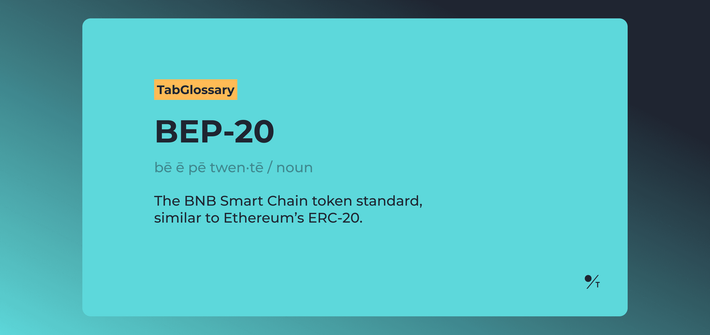BEP-20 is the token standard for the BNB Smart Chain (BSC). It acts as a rulebook that defines how tokens are created, transferred, and used on the network — much like Ethereum’s ERC-20 standard. If you’ve used ERC-20 tokens before, BEP-20 will feel instantly familiar.
The point of BEP-20 was to give developers a flexible framework. With it, you can spin up tokens that act like company shares, stablecoins pegged to the dollar, or brand-new native assets. You can even bring tokens from other blockchains over to BSC. These “Peggy” coins are wrapped versions of assets like LINK or XRP, rebuilt in BEP-20 format so they can move around on the chain.
Just like gas on Ethereum, BEP-20 transactions run on BNB. Validators collect BNB as fees when they confirm transactions, which keeps the whole system humming along.
BEP-20 didn’t just copy ERC-20; it tweaked it. The idea was to keep full compatibility while making transactions faster and cheaper on the BNB Chain. That flexibility opened the door for developers to create all kinds of tokens: company shares, stablecoins backed by real-world dollars, or even native assets that live entirely on BNB Chain. You can also “peg” tokens from other blockchains, wrapping them in the BEP-20 format so they work seamlessly within the ecosystem.
Why BEP-20 matters
Every BEP-20 token comes with built-in functions like checking balances, transferring tokens, or tracking ownership. In other words, they all speak the same language, which makes them easy to issue, use, and integrate across apps running on BNB Chain.




